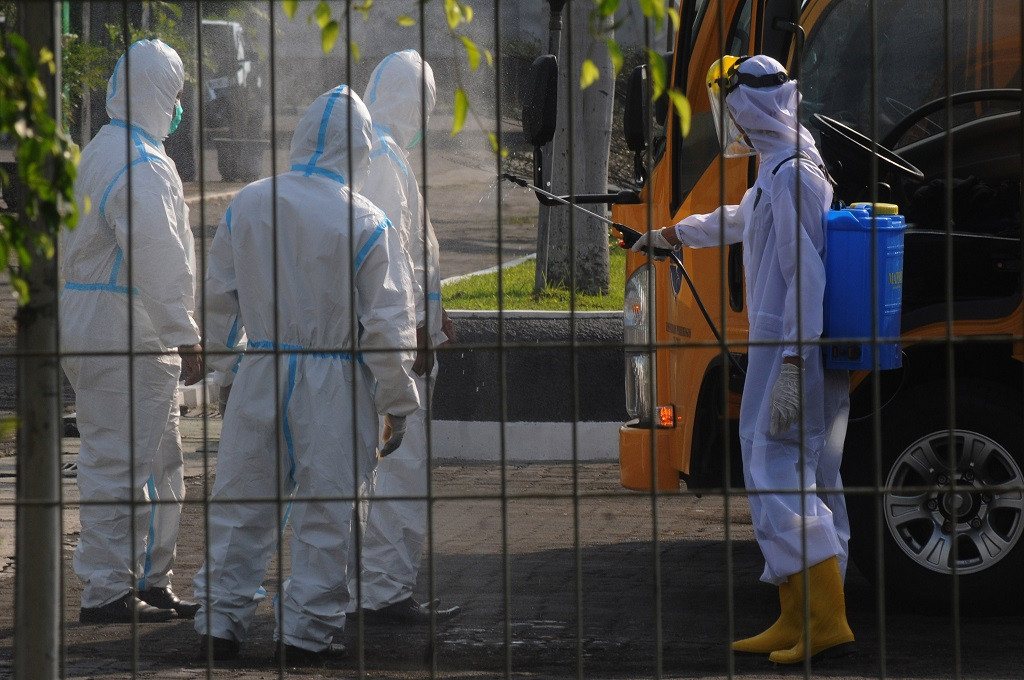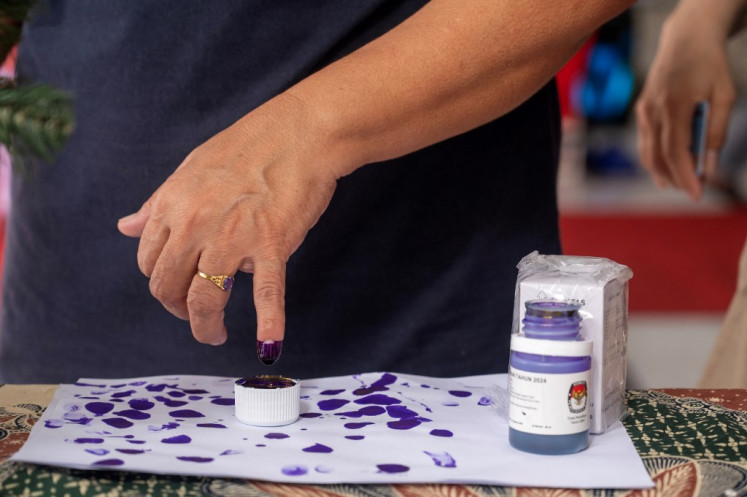Popular Reads
Top Results
Can't find what you're looking for?
View all search resultsPopular Reads
Top Results
Can't find what you're looking for?
View all search resultsDelta variant behind recent COVID-19 surge
Health Ministry spokeswoman Siti Nadia Tarmizi said on Tuesday that authorities had found 145 samples containing any one of three variants of concern.
Change text size
Gift Premium Articles
to Anyone
The recent surge of COVID-19 cases in the country has most likely been caused by the Delta variant of the coronavirus, which was first detected in India, government health authorities have said.
The widespread presence of the variant was noted by Health Minister Budi Gunadi Sadikin on Monday. He said it had been detected in samples taken in Jakarta; Kudus, Central Java; and Bangkalan, East Java.
Health Ministry spokeswoman Siti Nadia Tarmizi said on Tuesday that authorities had found, through a whole-genome sequencing effort conducted in 12 provinces, 145 samples containing any one of three variants of concern.
Of the 145 samples, 104 contained the Delta variant, 36 contained the Alpha variant, and 5 contained the Beta variant.
These strains represent three of the four variants of concern flagged by the World Health Organization (WHO). The Alpha variant was first discovered in the United Kingdom, and the Beta variant was first discovered in South Africa.
Several studies have found that the Delta variant’s mutations may increase its transmissibility and make it resistant to antibodies generated by some vaccinations, although several vaccines are known to be effective against the variant.
Most prevalent in Kudus
Nearly 60 percent of the samples that were found to contain the Delta variant were taken from Kudus, a regency that has seen soaring COVID-19 cases following Idul Fitri.
The regency attracted nationwide concern after it reported nearly 930 new cases in the course of a week, from May 24 to 30, up from 26 cases detected the week before.
Cases in the regency grew by a factor of about 77 in the three weeks following the Islamic national holiday.
According to regency data, Kudus had 2,182 active cases as of Tuesday.
Central Java Governor Ganjar Pranowo acknowledged the discovery of the Delta variant on Sunday, saying that 62 of the 72 samples taken from Kudus contained the variant of concern, kompas.com reported.
Other regencies in the province, including Jepara, Demak and the provincial capital of Semarang, have also recorded a resurgence of cases and have been declared red zones, areas with a high risk of infection.
Ganjar said he was seeking to increase genome sequencing in other regencies of the province.
On Sunday, Kudus Regent Hartopo announced a seven-day stay-at-home policy beginning on Monday and lasting until June 20 on top of the government’s micro-scale public activity restrictions (PPKM Mikro).
The regency administration will limit gatherings, and the Kudus COVID-19 task force said it would conduct rapid tests on citizens who failed to follow the health protocols.
“If there are still more COVID-19 cases, we will extend [the policy],” Hartopo said, as quoted by kompas.com.
Jakarta follows Kudus with 20 samples containing the Delta variant. Ten of the samples were detected in genome sequencing tests performed in late May and early June.
On Monday, the capital recorded 2,772 new confirmed cases, the most since February, when the city saw a surge of infections after the year-end holidays.
Active cases in Jakarta have also increased by more than half in the past week, from 11,500 to 17,400. Within a one-week period, the bed occupancy rate (BOR) in Jakarta increased from 45 to 75 percent.
Vaccine still effective
National COVID-19 task force spokesman Wiku Adisasmito said genome sequencing was not currently available in all parts of the country, preventing authorities from reliably tracing the new variants of concern.
However, he said the vaccines used in Indonesia were still effective against the new variants.
“All vaccines used in Indonesia still meet the requirement of an effectiveness above 50 percent,” Wiku said during a press briefing on Tuesday.
Minister Budi said on Monday that President Joko “Jokowi” Widodo had ordered authorities to increase the daily vaccination rate to 1 million doses daily by next month to limit the surge of cases.
Griffith University epidemiologist Dicky Budiman warned that COVID-19 cases would continue to increase in the coming weeks, considering the widespread transmission of the Delta variant.
He said Java was at particular risk because it was densely populated in many areas.
“This is very dangerous, especially because people who have just received the first dose of the vaccine can still get seriously ill if they catch the COVID-19 virus,” Dicky told The Jakarta Post on Monday.










